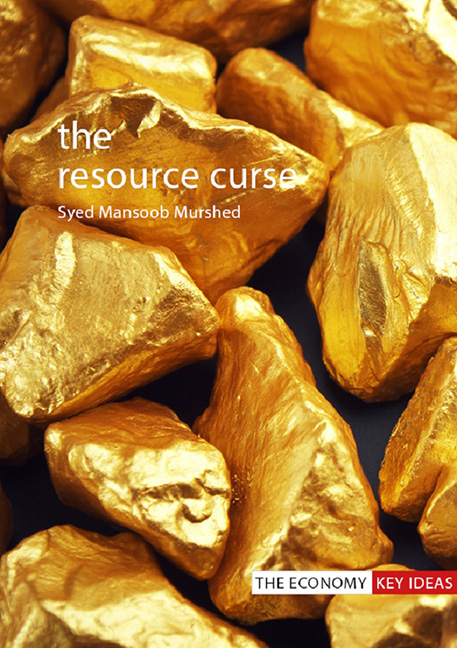Book contents
- Frontmatter
- Dedication
- Contents
- Acknowledgements
- 1 Introduction: explaining the resource curse
- 2 The Dutch disease and deindustrialization
- 3 Growth and the institutional resource curse
- 4 Empirical evidence on the resource curse
- 5 Resource rents and violent internal conflict
- 6 Managing resource rents
- 7 Concluding comments
- Appendix 1 Growth collapse with rent-seeking
- Appendix 2 A model of civil war with greed and grievances
- References
- Index
3 - Growth and the institutional resource curse
Published online by Cambridge University Press: 09 August 2023
- Frontmatter
- Dedication
- Contents
- Acknowledgements
- 1 Introduction: explaining the resource curse
- 2 The Dutch disease and deindustrialization
- 3 Growth and the institutional resource curse
- 4 Empirical evidence on the resource curse
- 5 Resource rents and violent internal conflict
- 6 Managing resource rents
- 7 Concluding comments
- Appendix 1 Growth collapse with rent-seeking
- Appendix 2 A model of civil war with greed and grievances
- References
- Index
Summary
How do resource-rich countries end up with lower growth compared to resource-poor economies? How does the presence of significant resource rents impact negatively on political institutions (democracy) and the quality of governance? This chapter presents the theory and ideas behind the negative economic effects of the resource curse on economic growth, democracy and governance quality, such as the impact on corruption, as well as the impact of resource rents on public education spending, savings and fiscal dependence on royalties from natural resources.
We have considered the Dutch disease mechanisms that can harm the economy in the previous chapter, and it is worth noting that economies dependent on natural resource revenue rents are subject to sharp volatilities in these rents as they progress through the global boom and bust cycles in commodity prices. The best example is the case of the fluctuating price of oil in the last half a century. This volatility, in the context of an undiversified economic structure, can be a source of lower growth, as van der Ploeg and Poelhekke (2009) point out. Their finding has similarities to the implications of the celebrated Prebisch (1950) and Singer (1950) hypothesis about the secular decline in commodity prices relative to manufactured goods prices. In recent years the volatility effect may have been exacerbated by procyclical borrowing by resource-rich countries, which leaves them in a debt trap after a crash in commodity prices.
In this chapter, I begin with a sketch of the theories of economic growth, with a special focus on the long-run determinants of growth, which relies mainly on institutional explanations. The negative effects of resource rents from a political economy perspective arise when it leads to rent- seeking and corruption, which lower growth via their destructive effect on normal productive investment and hence growth. This line of reasoning is considered in the next section. Alternatively, resource rents may have a direct impact on political institutions, as well as governance; we may refer to this mechanism as the “political resource curse”, discussed in the section that follows.
- Type
- Chapter
- Information
- The Resource Curse , pp. 31 - 46Publisher: Agenda PublishingPrint publication year: 2018

